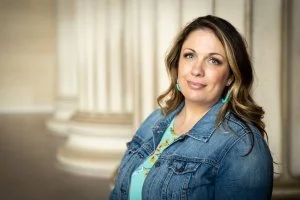“The two biggest stories in American religion are the nones and the nons,” premier numbers guy (and GetReligion contributor) Ryan Burge tells Christianity Today.
Nones, so prominent in the media this past decade, are those increasing Americans who tell pollsters they have no religious identity or affiliation.
But nons? They’re nondenominational Protestants whose local congregations are wholly self-governing and independent of traditional denominations. A blockbuster in the November U.S. Religion Census report said that, taken together, they number 21 million and are unquestionably the largest U.S. Protestant group, exceeding by millions the largest denomination, the Southern Baptist Convention, and second only to Catholics.
This is a story that is everywhere. There are 44,319 “nons” congregations, an increase of 8,823 since 2010, and this crowd now claims more than 13% of the nation’s churchgoers.
At the end of a hectic 2022, The Religion Guy thus proclaims the now-documented rise of the nons the Story of the Year, one that local and national media need to be pursuing. This development was quickly highlighted by Daniel Silliman of Christianity Today and Tracy Simmons for Religion Unplugged. Summarized CT, “Little noticed, they have been quietly reworking the religious landscape.”
Most such congregations are evangelical (or charismatic-Pentecostal) and they are young. Although many are modest in size they’re prominent on the Outreach100 list of the largest U.S. Protestant congregations.
Thus, this is a story that is local, regional and national. Think Highlands in Birmingham, Lakewood in Houston, Crossroads in Cincinnati, Christ Fellowship in Palm Beach or North Point outside Atlanta. One celebrated example, Willow Creek in suburban Chicago, now ranks 69th among the megachurches.










